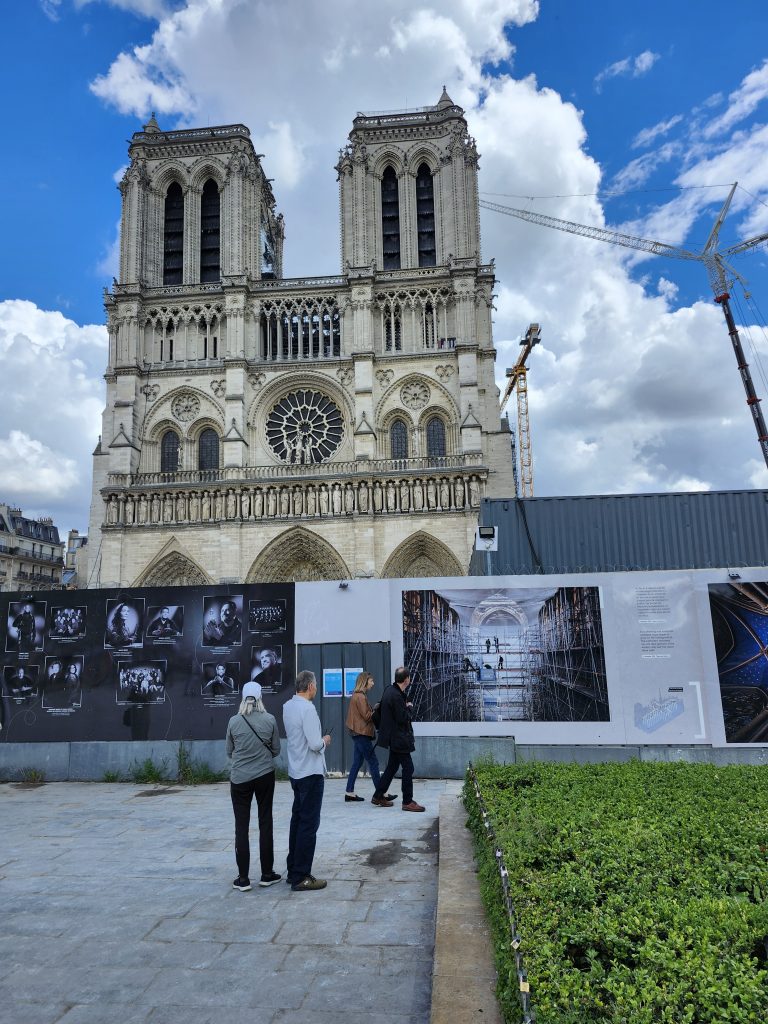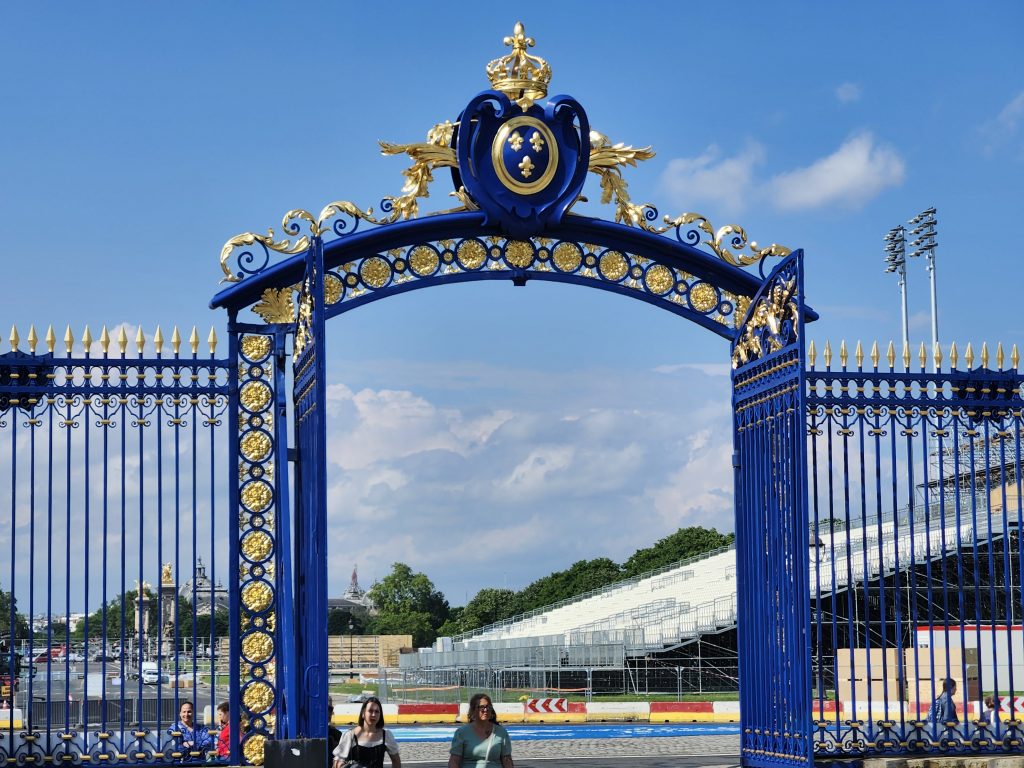Yesterday morning, the Normandy Scholars gathered in Paris at our bustling hostel in northeastern Paris. It’s a local’s neighborhood, like the ones many of us come from, not as overrun with tourists as other parts of the city. Most of us are from Tennessee, but we arrived in Paris via many different routes and places. Our return journeys will be equally different, some of us heading home while others travel elsewhere for other experiences. For the next ten days, we will travel together through memory sites of the Second World War and beyond in Paris and Strasbourg in France, then Casablanca and Fes in Morocco.

My vision in bringing Normandy Scholars to Paris was to encounter the dense memorial landscape of this two-thousand-year-old city in a country that has commemorated and catalogued its history, monuments, and cityscapes like few others. Our first days have taken us on walking tours of the many small monuments around Notre-Dame-de-Paris and the Eiffel Tower, iconic sites that sometimes overshadow their neighbors. We have seen firsthand sites we studied in class and experienced the ways they connect – or do not – across the streets of Paris. We have walked from the center of Paris across the south side of the Seine River known as the Left Bank, then returning north for a welcome dinner of West African cuisine, on a busy itinerary to help with the time change. We have seen the vast preparations for the Olympics around the Eiffel Tower.

Over the next two weeks, our cohort of 12 Normandy Scholars students will document these experiences here and on Instagram (@utk_normandyscholars). If I’ve been short on details so far, it is because I want to leave it to them to describe what they see, hear, and think. I’ve encouraged them to do in a variety of mediums: writing, drawing, photography, video, or otherwise. We will be asking, what do people, societies, and institutions remember World War II, and how? What stories do their commemorations tell about themselves? What is forgotten or excluded? And most of all, what we can learn about the meaning of the past in the present?